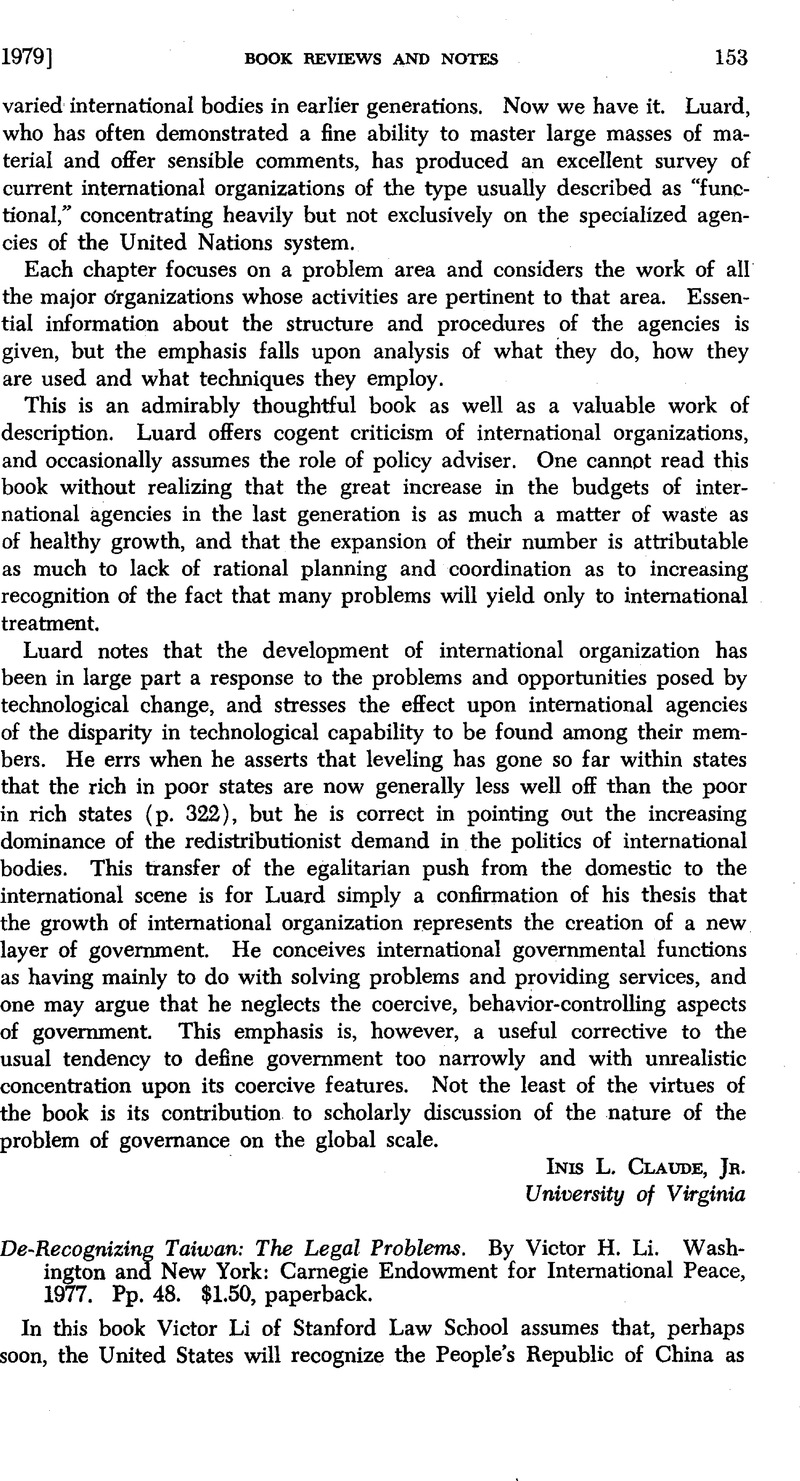No CrossRef data available.
Published online by Cambridge University Press: 27 February 2017

1 Compare Bishop, International Law Cases and Materials 343 (3d ed. 1971); Lauterpacht, De Facto Recognition, Withdrawal of Recognition, and Conditional Recognition, 22 BRIT. Y.B. INT'L L. 164 (1945).
2 Thus, the United States recognized Israel's government as “the de facto authority of the new State of Israel” on May 14, 1948, following up with de jure recognition on January 31, 1949. 2 Whiteman, Digest of International Law 168-69 (1963). The United States recognized the Finnish government as the de facto government on May 7, 1919, and as the de jure government on January 12, 1920. 1 Hackworth, Digest of International Law 212 (1940). The United States recognized the Carranza government as the de facto government of Mexico on October 19, 1915, and as the de jure government on August 31, 1917. 1 Hyde, International Law 194-95 (2nd ed. 1945). The British recognition of the Soviet government as a de facto government in 1921 preceded its recognition as a de jure government in 1924. Ibid. Hyde well comments: “neither clearness of thought nor improvement in the conduct of foreign relations is facilitated by according formal recognition to a foreign regime in terms that accentuate unwillingness to make full acknowledgment that it is deemed to be the government of its own State. Nevertheless, it should be borne in mind that States are not infrequently inclined to pursue such a course.” Ibid. The author's use of the term “de facto recognized” must be carefully distinguished from this more common, even if undesirable, use of the expression.